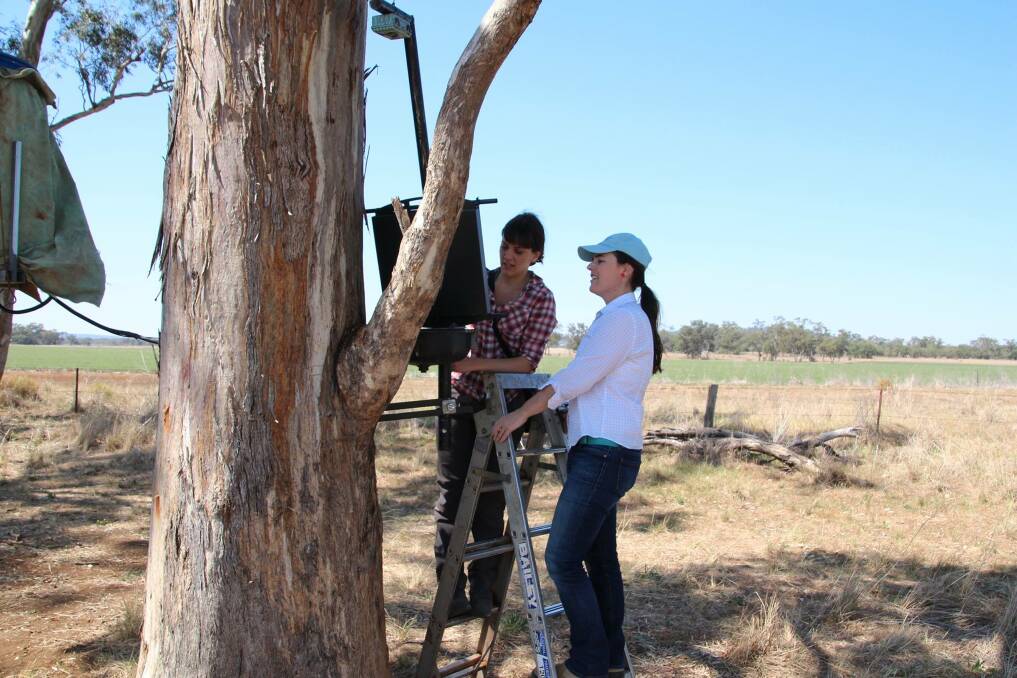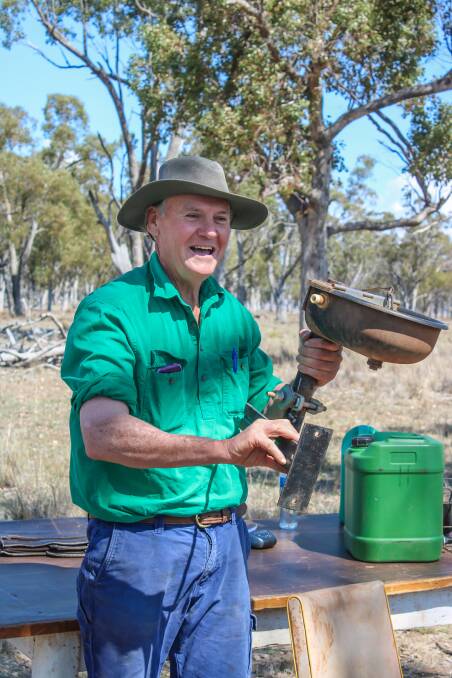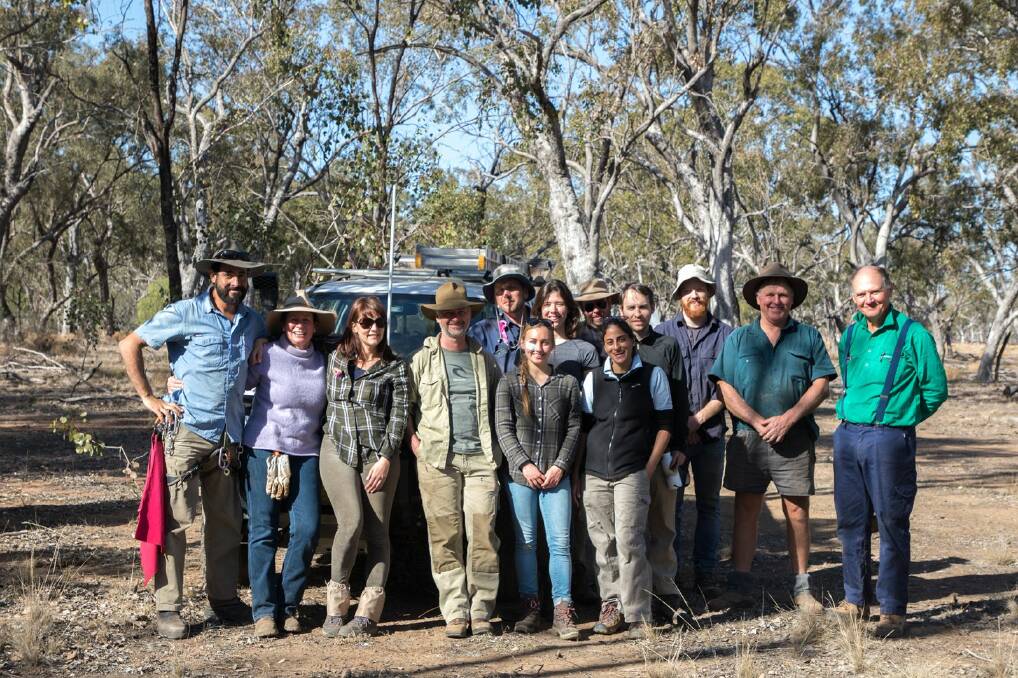
Koala enthusiast Dr Valentina Mella is celebrating more than $143,000 in funds for ongoing koala research in the Gunnedah area.
Subscribe now for unlimited access.
or signup to continue reading
Dr Mella is leading a world-first study into the importance of water to the survival of koalas using Blinky Drinkers, designed by Gunnedah farmer Robert Frend. The water drinkers are placed in trees, with a video camera and microchip scanner to record koala visits.
The koala researcher was thrilled when she found out her university was backing the project and said the funds would make a big difference.
“We’re very excited. It’s a lot more than we expected,” she said.
“It means we can expand the study and set up more drinkers and do more analysis, collect more samples.”

Dr Mella said one of the most expensive elements of the project was site visits because of the travel, accommodation and equipment. The funds are timely, with plans to rent a portable laboratory for the research team’s next visit in January 2019 so they have a cool space for the koalas.
A new focus of the field trip in January is to measure the effect of heat on the koalas and how water helps them to manage it.
“We’re purchasing little temperature capsules, which are ingested by people or animals, so we can measure internal temperature over a period of time, and then they expel them,” Dr Mella said.
“They’re amazing little things.”
Dr Mella said the team would need to capture about 20 koalas for the task, then recapture them after a week and download the data remotely.
“We can capture these animals and see how much they’ve been drinking and see how they keep cool,” she said.
“That way we can see how high their temperature gets, how hot they can get before they die or get dehydrated.
“Their ‘sweating’ is to breathe... They breathe faster and pant and that mechanism helps them keep cool but they also lose a lot of water and that’s how they get dehydrated.”

Dr Mella said nobody had used capsules to measure temperature before, usually electing to use an implant under the skin or in the body cavity. She said this was an “invasive” method and the capsules would cause less stress to the koalas.
“We’ve done [the capsules] in captivity just to check and everything went fine,” she said.
Due to the expected high temperatures in January, Dr Mella said the team would also capture less koalas and call off a capture if it took more than 30 minutes from when they sight an animal to when they can get it down to the ground.

